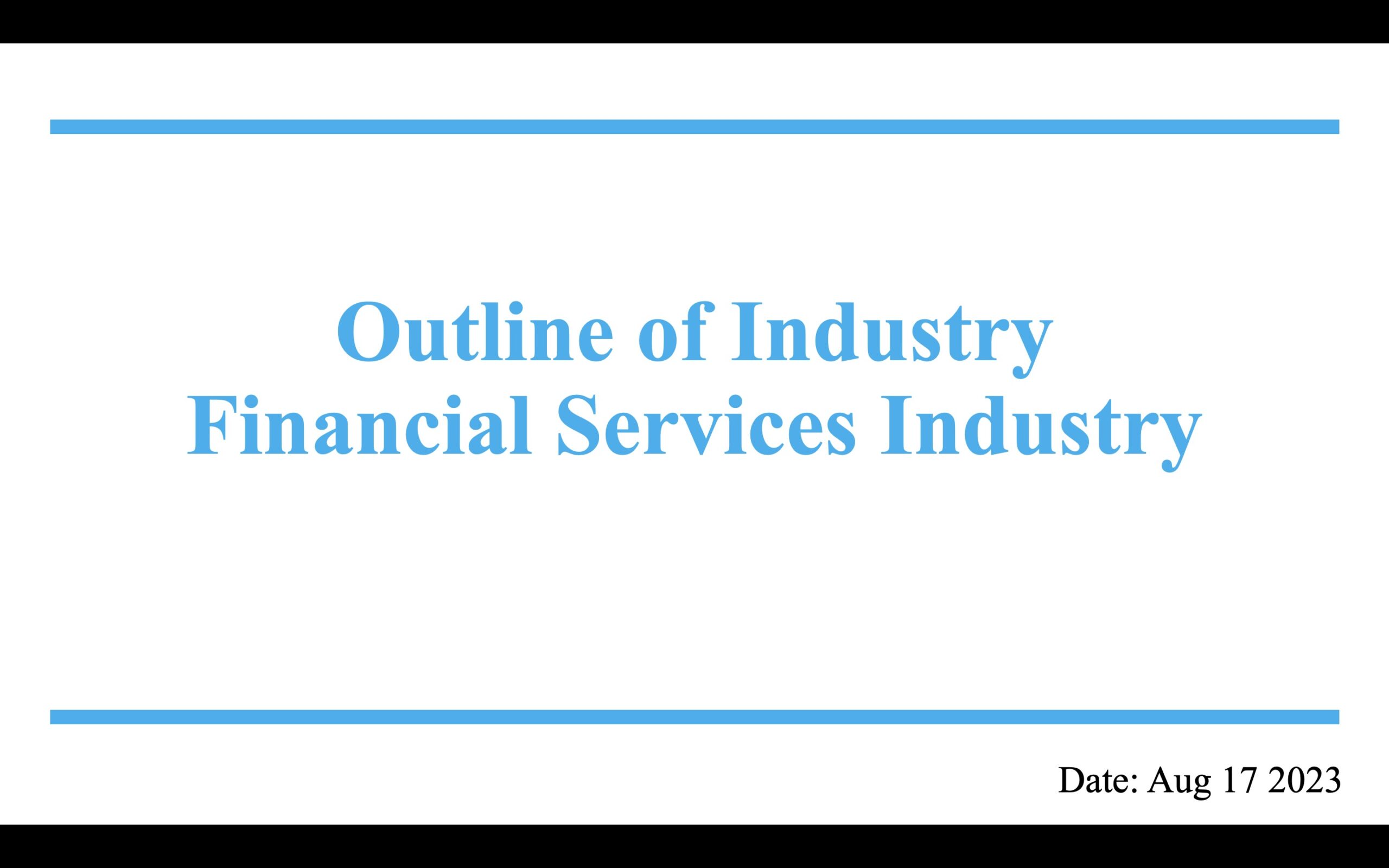The financial services industry is a critical component of the global economy, providing essential services to individuals, businesses, and governments. This industry encompasses a wide range of activities, including banking, investment management, insurance, and financial technology (fintech). In this essay, we will explore the history of the financial services industry, its current state, and its future prospects.
The history of the financial services industry dates back thousands of years, with the first banks emerging in ancient civilizations such as Babylon and Greece. Over the centuries, the industry has evolved and grown, with the introduction of new technologies and the development of new financial instruments and services. The 20th century was a particularly significant period in the history of the financial services industry, with the rise of large financial institutions, the growth of international finance, and the development of new technologies such as computers and the internet.
Today, the financial services industry is a highly competitive and dynamic sector, with a wide range of players, including traditional financial institutions, fintech startups, and large technology companies. The industry is characterized by rapid change, with new technologies, such as blockchain and artificial intelligence, transforming the way financial services are delivered and consumed. The growth of mobile and digital technologies has also created new opportunities for the industry, with the rise of online banking, mobile payments, and other digital financial services.
The current state of the financial services industry is shaped by a number of trends and factors, including the ongoing impact of the COVID-19 pandemic, the growth of fintech and digital financial services, and increased regulation and scrutiny of the industry. The pandemic has accelerated the adoption of digital financial services, with many consumers and businesses turning to online and mobile banking, and has also led to increased scrutiny of the financial sector, with calls for greater regulation and oversight. At the same time, the rise of fintech has disrupted traditional financial services, with new players entering the market and offering innovative and more affordable services to consumers.
The future of the financial services industry is uncertain, with a range of potential outcomes depending on a number of factors, including technological developments, economic trends, and regulatory changes. On the one hand, technological advancements have the potential to transform the industry, making financial services more accessible and convenient for consumers and businesses. On the other hand, there are concerns about the impact of these technologies, including cybersecurity risks and the potential for increased inequality and financial instability. In addition, the industry is likely to face increased regulation and scrutiny, as policymakers seek to protect consumers and maintain stability in the financial system.
In conclusion, the financial services industry is a critical component of the global economy, providing essential services to individuals, businesses, and governments. The industry has undergone significant changes over the centuries, adapting to new technologies and changing economic and regulatory environments. The current state of the industry is shaped by a number of trends and factors, including the impact of the COVID-19 pandemic, the growth of fintech and digital financial services, and increased regulation and scrutiny. The future of the financial services industry is uncertain, with a range of potential outcomes depending on technological developments, economic trends, and regulatory changes.



Comment